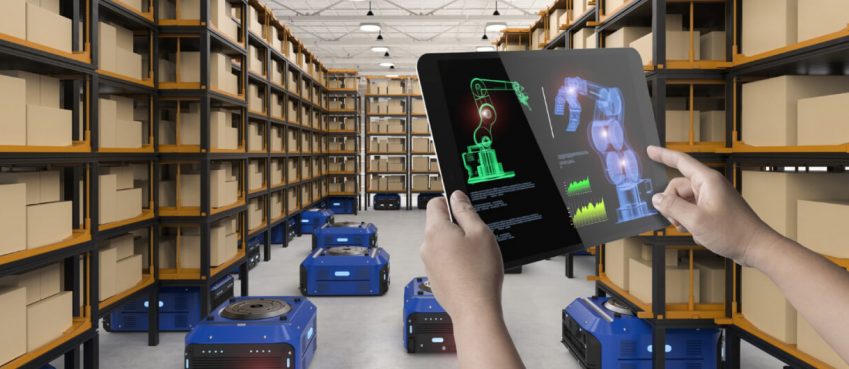
IoT-aided fleet tracking and management is not a game-changer; it is completely redefining the rules of the game.
In a world where businesses are increasingly adopting new technologies to stay ahead in the race, by incorporating the best features of the IoT technology in their fleet, fleet owners are optimizing their business to reach levels beyond the achievable limits of humans.
To understand the impact of IoT, tracking, and data on the fleet management industry, let us look at a set of numbers published by Markets and Markets.
The report suggests that the IoT-aided fleet management industry is projected to grow at a healthy pace of 21.26% CAGR and touch the landmark of US$8.28 billion before 2022.
If you have been wondering how modern technologies like Big Data, GPS tracking, and IoT have been transforming the fleet industry, then go through this article in its entirety.
This article shows you how businesses are leveraging the boon of modern technology to optimize business efficiency, reduce vehicle downtime, enhance fuel consumption, and comply with government mandates.
How Does Modern Technology Affect The Fleet Management Industry?
Technology is everywhere. The fleet management industry has so far played a pioneering role in adopting new technology that aims to make fleet operation risk-free, less vulnerable, and more productive.

The following are the major reasons why fleet owners are opening up to IoT, data management, and tracking at a faster pace than ever before:
- Obtaining details regarding the fleet with the help of a fleet tracking app becomes much simpler, time-saving, and cost-effective
- Helps in utilizing fleet to its optimum capacity, by reducing engine idling and vehicle downtime
- Enables real-time tracking of vehicles, thus reducing the possibility of theft or driver-led disruptions
- Helps adhere to government-mandated ELD and Hours of Service regulations
- Reduces inventory expenses by keeping track of maintenance schedule and fuel consumption trends
- Makes reporting easier, by automating the report generation and compilation process
- Improves safety, by notifying the driver about hostile weather conditions or road blockades
- Enhances customer satisfaction by enabling faster and time-bound delivery of the consignment
- Increases vehicle life-span, as fleet owners can use the Vehicle IoT Gateway data to carry out maintenance activities
- Simple plug and play operation reduces dependence on costly and complex fleet management solutions
- Saves money by reducing dependence on labor and technicians
Hence, advanced technologies like IoT, data management, and tracking are simplifying complex processes that consumed most of a fleet owner’s resources earlier.
Let us now understand in detail how IoT-enabled data management and fleet tracking is changing the fleet management landscape.
How is IoT Contributing to Fleet Modernization?
IoT in Brief
Internet of Things, popularly known as IoT, is a complex to understand, yet simple to execute, a technology that uses various specialized devices to connect vehicles with its owner, in real-time.
In the trucking industry, IoT mostly comes in the form of telematics devices that record real-time vehicle data and send it in packaged form to the fleet owner, who can take necessary steps to improve the fleet’s operational efficiency.
Also read: Top 9 WordPress Lead Generation Plugins in 2021
Applications of IoT
IoT technology is a versatile technology, which means you can modulate it according to the specific needs of your fleet.
Typically, IoT sensors are fitted onto the vehicle to track the driver, engine, equipment, and road condition, among other things. These sensors collect real-time data and send them in a packaged format to a cloud server. The cloud server compiles and segregates the data and resend it to the data dashboard, available with the fleet owner.
The fleet owner relies heavily on dashboard analytics to determine the efficiency of the fleet. The dashboard is the fleet owner’s all-in-one system that helps them to analyse the fleet by way of graphs, charts, or numerical data.
As the dashboard is fully customizable, you may sift through a large volume of data and filter out the most pertinent data that you need urgently.
The Impact of IoT
IoT has widespread implications in improving the quality of the fleet business. Here are the most prominent ways of how IoT is impacting fleet management:
- Save Fuel – On average, vehicles waste about 6 billion gallons of fuel every year. Engine idling is not only responsible for wasting money, but also in decreasing the vehicle life-span. The IoT-generated report can help save fuel, increase fleet utilization, and reduce carbon emission.
- Carry Out Preventive Maintenance – Conducting timely repair and equipment up-gradation is critical to improving the operational efficiency of the fleet. As IoT sensors send automated early-warning signals and alerts, carrying preventive maintenance becomes easy for the fleet owner.
- Improved Analytics – It is a known fact that a machine can generate limitless data that is impossible to produce manually. As IoT sensors give you access to a large pool of data, you can use the most relevant data to find out information about vehicle idling, over speeding, driving patterns, and vehicle condition.
- Comply With Government Mandate – The federal government has put in place stringent provisions to punish HOS violators. An IoT-aided telematics device can log HOS electronically, thereby eliminating the possibility of the fleet owner to getting caught for being on the other side of the law.
- Predict Road Condition – Weather and road conditions change quite fast, making it impossible for traditional GPS trackers to provide just-in-time route changes. IoT data, on the other hand, not only provide real-time data, but also includes a large variety of data, like road temperature, air temperature, wind pressure, barometric pressure, and humidity. Hence, it can make the task of route optimization easy for the fleet manager.
What is the Contribution of Big Data to Fleet Modernization?
Big Data has penetrated all aspects of effective fleet management. Be it improving driver safety, automating vehicle analytics, reducing accidents, minimizing vehicle downtime, or diagnosing training requirements, Big Data is simplifying all aspects of fleet management.
By tracking telematics data, fleet managers can accurately identify risky driver behavior, like the tendency to over speed, brake harshly, or not following the road rules. Fleet managers can track real-time data to identify patterns and coach drivers, which in turn improves fleet operations.
Another advantage of Big Data is that it helps the fleet to adhere to government rules and regulations. By making the entire process automated and trackable, it saves the fleet owner from hassles of litigation in case something bad ever happens.
Why Do You Need an IoT-Aided Tracking Device For Your Fleet?
To understand the need for an IoT-aided tracking device, you would have to read up on trucking industry updates. A dispatch track acts as an interface between complex real-time GPS data and the driver. It helps in tracking real-time route progress, rerouting, and improves vehicle operation.
As the fleet industry becomes fully automated, IoT, coupled with Big Data and tracking, is making the industry a better place for all stakeholders.
Top 10 News
-
01
Top 10 Deep Learning Multimodal Models & Their Uses
Tuesday August 12, 2025
-
02
10 Google AI Mode Facts That Every SEOs Should Know (And Wha...
Friday July 4, 2025
-
03
Top 10 visionOS 26 Features & Announcement (With Video)
Thursday June 12, 2025
-
04
Top 10 Veo 3 AI Video Generators in 2025 (Compared & Te...
Tuesday June 10, 2025
-
05
Top 10 AI GPUs That Can Increase Work Productivity By 30% (W...
Wednesday May 28, 2025
-
06
[10 BEST] AI Influencer Generator Apps Trending Right Now
Monday March 17, 2025
-
07
The 10 Best Companies Providing Electric Fencing For Busines...
Tuesday March 11, 2025
-
08
Top 10 Social Security Fairness Act Benefits In 2025
Wednesday March 5, 2025
-
09
Top 10 AI Infrastructure Companies In The World
Tuesday February 11, 2025
-
10
What Are Top 10 Blood Thinners To Minimize Heart Disease?
Wednesday January 22, 2025






